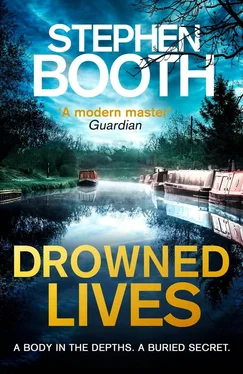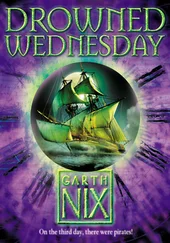On the wall behind the engine was a day tank, where the fuel was hand-pumped from the main tank. It was decorated with the same Roses and Castles design and the name of the engine manufacturer stood out in ornate script — Lister. I looked again, and realised this was no Beta, but a genuine Lister JP3, a vintage engine much loved by boaters. I immediately began to revise the value of Kestrel upwards from my original £80,000 estimate to something closer to £100,000.
At first glance, there seemed to be no evidence of the modern requirements of an engine room and the other systems that a boat of this kind would undoubtedly have. But I opened a hatch in the floor and a corner cupboard to locate batteries, diodes, a boiler and an electrical distribution board, all tucked discreetly out of sight.
I felt the boat dip and sway on the water, bumping gently against the bankside. I looked at the blank windows, expecting to hear another boat passing, but there was nothing. Even if I’d been able to see past the steel shutters, it was totally dark outside.
Forward of the engine room I came to more familiar surroundings. From here on, the accommodation was comparable to a luxury caravan. There was a small bathroom with decorative tiling around the bath and vanity unit, and in a cubicle was a toilet with its flush operated by a foot pedal. The dining area had two bench seats and a central table that looked as though it might convert into a double bed, and a surprisingly large bedroom contained a wardrobe and dressing table and an end column to the bed which gave it the appearance of a four-poster. I passed these rooms fairly quickly and followed the narrow passageway into a galley which had yards of worktop area, as well as an oven, hob and refrigerator.
Finally, I entered a spacious saloon, set out with pine rockers and book shelves and a coffee table with the inevitable Roses and Castles. I began to open the cupboards and peer into the drawers. Like a caravan, every bit of space was used to its utmost and there was storage in the oddest of places. By now, I felt no compunction at searching through the items left behind by Samuel. But they were remarkably uninformative — just the normal clutter of a life lived in an enclosed space.
Then I sniffed. For the first time I noticed there was a strong smell of diesel fuel. I wondered where the main fuel tank was on this type of boat, and whether there were still spare cans on board. Marine diesel is tax-free and therefore cheap, and it has a tell-tale pink dye added to distinguish it from the heavily taxed stuff that has to be used in road vehicles. But fuel is only sold at boatyards, and diesel engines can’t be allowed to run out of fuel. So boaters using diesel engines like the one on Kestrel will invariably carry at least one spare can to make absolutely sure they can reach the next boatyard to find a fuel line.
I found where the gas supply was stored, in a locker at the fore-end, in front of the saloon. There were a couple of gas bottles standing there, and at least one of them was pretty full. But it wasn’t gas I was smelling. I thought I’d finish checking the fore-end of the boat before working my way back to the stern and looking for the fuel tank.
Then I noticed a section of the wooden deck that had been formed into a small hatch, no more than a few inches square. Using a knife from the cutlery drawer in the galley, I eased it open. I found myself peering down into the hull of the boat, with a peculiar damp, green smell rising up to greet me. I shone my torch into the darkness, so I could make out the shape of the hull curving below me. It wasn’t as far down as it had seemed at first. If I reached out an arm, I could probably touch the planks.
I realised this was the famous weed hatch. Just below the planks was the shaft of the propeller, and any weeds or other debris tangled round it could easily be removed by hand via this hatch. If the engine was water-cooled, you also had to check the filter near the water intake regularly to make sure it was free of weeds that might block it and make the engine overheat. There were so many things to remember — it was no wonder life on the water could be hazardous if you got old or forgetful.
As the blackness at the bottom of the hatch settled into varying shades of grey in the torchlight, an extraneous object sprang into focus to one side, and my heart gave a jump. It was a package. I stretched out my hand as far as I could and just managed to get my fingers to it. Gradually, I eased the package towards me with the tips of my fingers until I could grasp it. It barely fit through the gap in the floor of the saloon, but eventually I had it, and I was able to sit back on my heels and examine what I held. From the feel and the weight of it, it had to be exactly what I’d been looking for. The missing section of Great-Uncle Samuel’s manuscript.
The boat dipped again. But I was too pleased with myself to worry about a bit of wash or current moving the boat, or the faint creaking overhead in the superstructure that may just have been Kestrel shifting gently at its moorings.
Eagerly, I pushed the section of deck back into place and studied my prize. The light from my torch was starting to fail now, and all I could see was a thick white envelope sealed with parcel tape and staples. There was no point in trying to open it and look at the contents in such poor light, so I shoved it inside my coat and began to head back towards the stern. I made my way through the galley, past the bedroom and bathroom and through the engine room, where the Lister glowed green and almost alive in the gloom.
When I entered the scumbled back cabin, the smell of diesel was even stronger. I peered over the counter to locate the brass capping stud to the fuel tank on the stern-end. It seemed to be firmly in position. But as I stepped up from the cabin, with my foot on the coal box, my eye fell on the little shelf below the hatches. I froze half way up the step and frowned in bewilderment. Samuel’s steel windlass had gone.
Before I could begin to puzzle this out, I heard a movement above me — no more than a faint whistling like something passing through the air at speed. I turned my head just in time to see the end of the windlass flash across my sight.
A split second later, a stunning blow landed on my skull and I fell backwards onto the floor of the cabin, unconscious.
As I came round, my first feeling was an excruciating agony at the back of my skull, which seemed to spread tendrils of pain through my head and neck, and numb my shoulders and arms. Then came the nausea, and I had to swallow painfully as I fought to keep the contents of my stomach down.
I was lying face down on the floor, and the planks were cold against my cheek. The smell in my nostrils should have been of wood, but it wasn’t. The reek of diesel was almost overpowering. But there was something else too that I thought I ought to be able to identify. Though my ears were ringing, there was also a noise somewhere that my brain couldn’t put a name to.
I don’t know how long I lay there waiting for the pain to subside. But my senses seemed to come alive before my brain did. The smells and sounds suddenly registered and became recognisable. Frightened, I moved my head too suddenly, and the pain erupted again. But now I was reacting automatically, driven by the adrenaline that was surging through my body and the unreasoning fear that gripped my limbs.
Fire. The acrid smell filling the cabin was smoke, and beyond it was the crackling of flames. Behind me, the boat was burning. I turned my head as I lifted it from the floor and saw fire leaping and sparking over a pile of paper and rags in the corner near the hatches. The flames were just beginning to creep up the steps, where a trickle of diesel was about to gain the impetus to run downwards to meet it. Without my torch, the blazing objects were all I could see in the smoke-filled darkness.
Читать дальше












